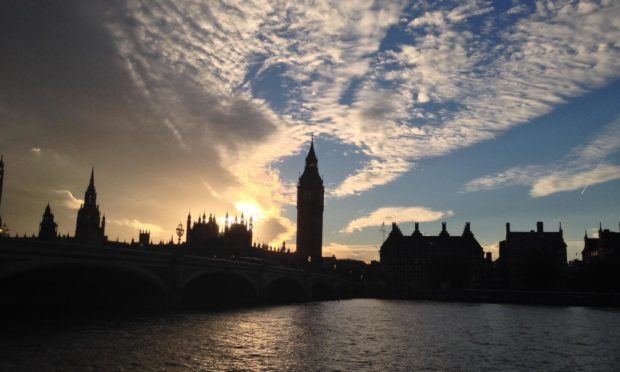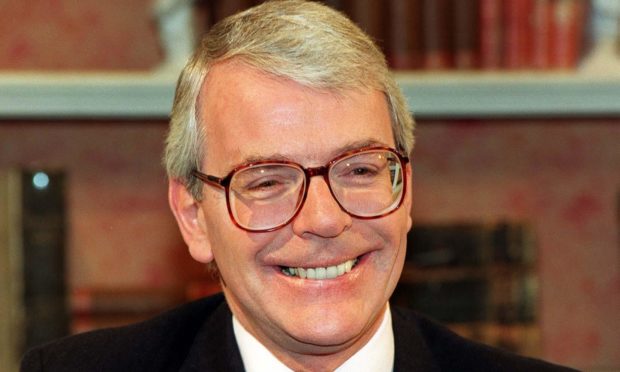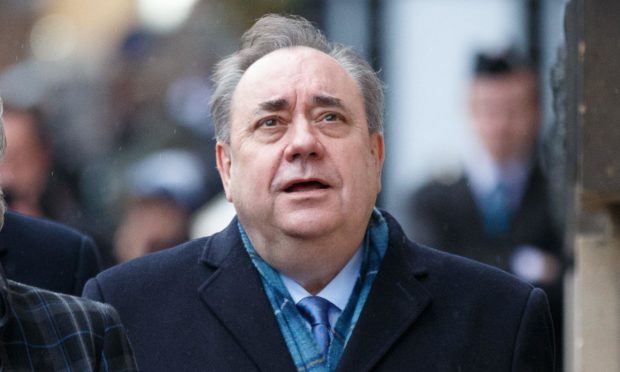Scots has been spoken in Scotland for several centuries and a conservative estimate puts speakers today at around 1.5 million, spread across the length and breadth of the country.
In fact, it’s recognised as the largest minority language in the UK, despite it not being officially learned, taught or standardised in any way.
Its popularity is evident on the streets of Aberdeen, Dundee and Glasgow – but it’s also got a place at the heart of the British establishment.
Scots words have been uttered in the House of Commons on hundreds of occasions over the centuries – below we take a look at who said some of the more well known phrases and words first.
Peelie-wally/pale or ill-looking
Former Scottish Secretary Donald Dewar first used this phrase in a 1995 debate on John Major’s plan for jobseekers.
Mr Dewar said: “The national insurance holiday for those who have been unemployed for two years is a peelie-wally little attempt to deal with a real problem. It is worth about £6 a week. That is the incentive. Surely the Government who invented the national lottery can do better than that.”
Dreich/dreary
Aberdeenshire West MP Russell Fairgrieve used the word dreich in reference to SNP plans for Scotland to be independent in Europe.
Mr Fairgrieve, speaking to the Scottish Secretary, said: “Will he assure us that he will resist the dreich and dreary separatist policies and ideas of the Scottish National Party and other newly-founded European vocalists who would like us to operate in the European institutions as five million people — putting us on a par with Denmark and Ireland — instead of as at present, with the 55 million United Kingdom muscle, with Germany and France?”
Scunnered/dislike or fed up
Greenock MP Dr Dickson Mabon used the phrase first in 1959 in a debate on state-aided schools.
Dr Dickson observed: “In my constituency a fee-paying school has a very good reputation, but it is a well-known fact that the local high school, which is not fee-paying, has a better educational standard at the moment.
“If the people become scunnered, MPs opposite will find it difficult to oppose a Labour Government on this issue if they propose to deal once and for all with the Scottish position.”
Stookie/a plaster cast
Former first minister Alex Salmond threw this word at government ministers in 1993 in a fury over funding for Scotland.
Addressing junior Scotland Office ministers he said: “His role throughout the debate seems to have been to sit like a stookie, saying absolutely nothing.
“When it has been pointed out that the total assistance budget of the Scottish Office is worth a third of what it was worth when the Government took office, the Minister has wriggled uncomfortably in his seat.”
Thrawn/Stubborn
Glasgow Springburn MP Frederick Macquisten first used the word in the Commons chamber 1919 in a debate on trade unions.
Mr Macquisten was defending the right of workers to cast secret ballots when considering strike action, without which he warned there would likely be more strikes.
He said: “It is often the case in regard to a trade dispute where you have an open ballot that the British working man, who is like all Britishers, one of the most pugnacious animals in the world — they are all what we call in Scotland, “Thrawn, a bit” — is impelled by the very fact of an issue being put before him in this way to say, ‘is this going to be a fight; then I am on the side of war’.”
Mony a mickle maks a muckle/Look after the pennies and the pounds look after themselves
Major Bertie Leighton MP first used the phrase in a debate in 1943.
The Oswestry MP made the comment in a debate on funding for woodland maintenance and the need not to forget smaller wooded areas.
He said: “There must be in England a very large number of small woodlands, and we should not forget that ‘mony a mickle maks a muckle’.”


